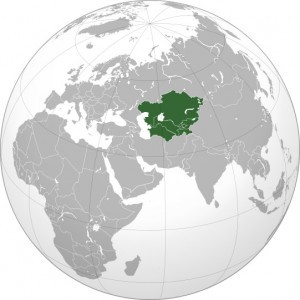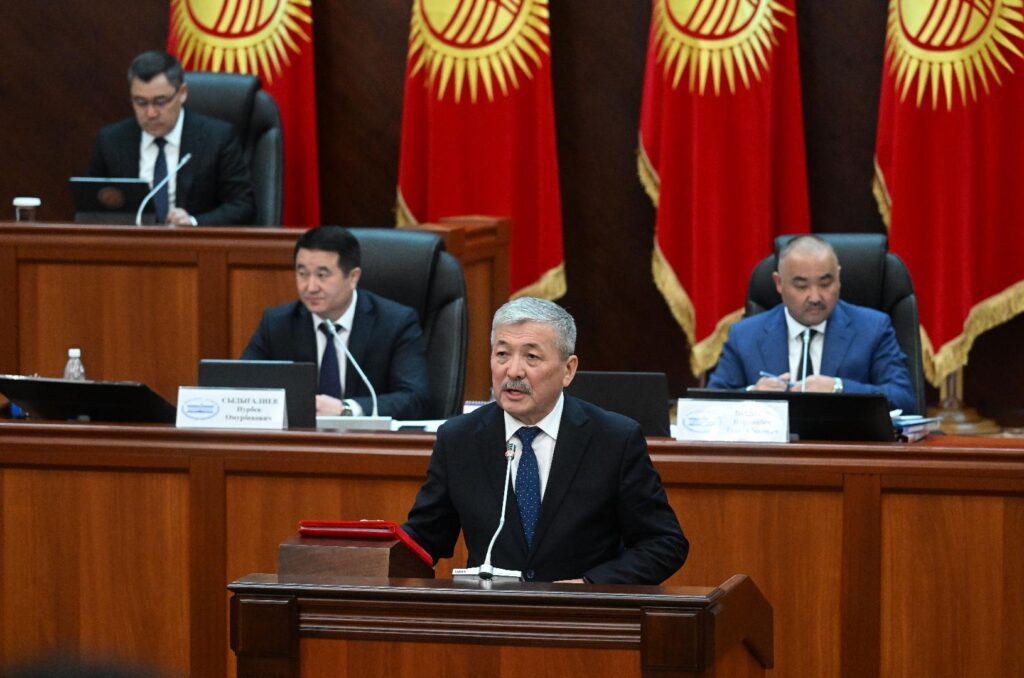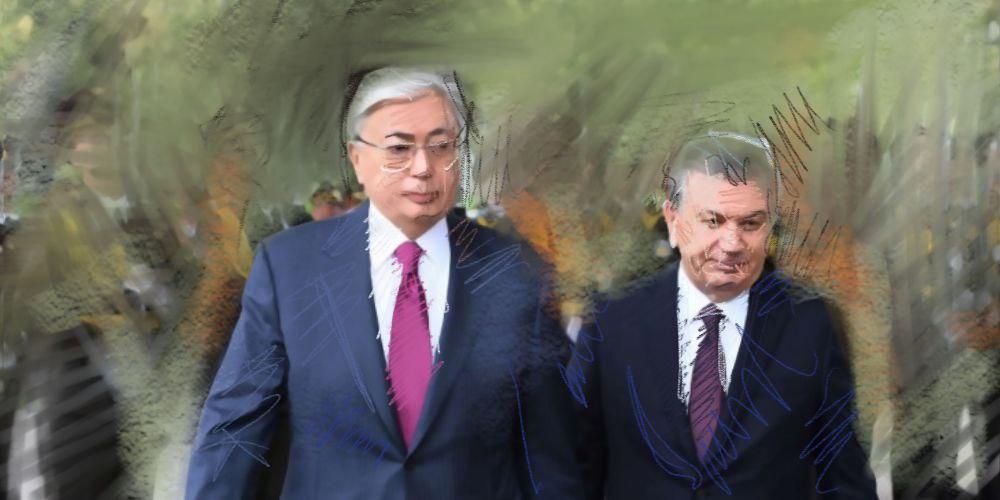BISHKEK (TCA) — The Times of Central Asia presents to its readers Stratfor’s Global Intelligence, a weekly review of the most important events that happened in the world — from Europe to Middle East to Russia to Central Asia to Afghanistan to China and the Americas.
The Week That Was
Guarding German Robotics
How far will Germany go to guard its national corporate champions from China’s voracious appetite for advanced technology? We shall see soon enough. China’s Midea Group offered a $5.1 billion bid to take over German robotics giant Kuka AG. However, it was revealed this week that German Minister of Economic Affairs Minister Sigmar Gabriel and European Commissioner for Digital Economy and Society Gunther Oettinger are working to assemble a European consortium to outbid China and keep Kuka in German or European hands.
This is both a battle of national interest and a glimpse into emerging highly competitive market for robotics that will transform the way we live, work and trade. Advanced robotics combined with emerging digital technologies and additive manufacturing will undergird economic success in a resource-constrained world. Germany’s future rests on its ability to maintain a high level of competitiveness in heavy industry and high-end manufacturing exports. China’s future depends on its ability to edge into this space and ultimately out-compete Japan and South Korea. China is therefore on an aggressive hunt for strategic acquisitions worldwide. Thus it is naturally making the target nations nervous. China National Chemical Corporation, for example, has already signed deals to take over German plastics and machinery manufacturer KraussMaffei and Swiss seed company Syngenta AG. These are the kinds of deals that will be instrumental to China’s goal of acquiring the technological platform and patents to become a major global competitor in heavy industrial manufacturing, biotechnology and electronics. A nationalist chord has been struck in Berlin, but the laws of the free market make it difficult to fight off this bid in the name of national security. We expect China’s foreign acquisition campaign to continue apace.
Germany Recognizes a Genocide
Raising the Armenian genocide always invites Turkish ire. This is precisely what happened when the German Bundestag unanimously adopted a resolution to recognize the genocide this week. It may seem odd that Germany is poking Turkey at a time when Europe really needs Turkish help to clamp down on refugees, but it is precisely because the Europeans need to bargain with Turkey that this political theater becomes necessary. The Europeans are not happy that Turkey has become increasingly authoritarian under President Recep Tayyip Erdogan, but Turkey is also not interested in getting lectured on human rights by Europe. By moving ahead with the genocide bill, German politicians can still claim they are serious about human rights as the negotiations with Turkey on the migrant deal and visa liberalization continue.
Rumors About Nigeria’s President
Nigerian President Muhammadu Buhari has us worried. In the past two weeks, he has abruptly cancelled four different trips: a May 22 trip to Lagos, a May 30 Cross River State trip, a June 1 Rivers State visit and the June 3 Economic Community of West African States Summit in Senegal. The president is under a great deal of pressure at the moment. In addition to a budget crisis, he is facing a rise in Niger Delta militancy and as political resistance from within his ruling All Progressives Congress. Buhari is still making public appearances and does not appear to be suffering from a critical health issue, but the last-minute cancellations still raise a red flag on just how severe this collection of crises has gotten. Notably, Buhari met with former presidents Goodluck Jonathan and Obasanjo in the past week.
No Progress for OPEC
Nigeria of course did not obtain any relief from fellow OPEC members, either. As expected, this week’s OPEC meeting was a bust. Although there was no policy change to cap production, Saudi Arabia did make an effort to show that that the oil cartel is still relevant and did its best to end the inconclusive meeting on a positive note. For now, the members have no choice but to follow Riyadh’s lead in waiting for the market to stabilize. We also got a glimpse this week of Saudi strategy to elevate and steer the Public Investment Fund toward bigger and riskier investments. A deal was struck for the fund to invest $3.5 billion in U.S. ridesharing company Uber in helping to expand the service’s overseas presence.
Japan Delays the Consumption Tax
Japanese Prime Minister Shinzo Abe announced a delay in raising the consumption tax, which had been planned for April 2017. The hike will now wait until October 2019. The delay was to be expected given that it would have exacerbated political problems ahead of July upper house elections and risked pushing the country into recession. But it appears Japan is also being more forthcoming about the fact that Abenomics has largely run its course. To this end, the ruling Liberal Democratic Party released documents on its platform for the July 10 election in which there is absolutely no reference to monetary policy. This is a big shift, as Japanese monetary policy formed the foundation of previous campaign pledges by Abe and the his party. Another round of fiscal stimulus to the tune of $90 to $100 billion is expected later this year.
Full Articles
A Look at Progress on a Chinese Aircraft Carrier
Satellite imagery reveals the progress China has made on its new Type 001A aircraft carrier project. Construction on the carrier began at the Dalian New Shipbuilding Heavy Industry Co.’s shipyard in northeastern Liaoning province in early 2015 and has since proceeded at a brisk pace. The imagery, acquired from Stratfor’s partners at AllSource Analysis, suggests that the project is a modular construction, in which sections of the vessel are built separately and then fitted together, allowing for shorter build times and greater flexibility. At this rate, the Type 001A could be launched as soon as early 2017, though commissioning it into the fleet would take several years more.
Syria’s Kurds Are a Means to Others’ Ends
In the interconnected zone of conflict spreading across Syria, Iraq and Turkey, the Kurds have taken on an increasingly important role. Their dispersal across the geographic area has allowed them to play a pivotal part in the fighting time and again, while their political divisions have subjected them to manipulation by outside powers. Now the Kurds are once again at the center of attention. In spite of Moscow’s ties to the government of Syrian President Bashar al Assad, Russia has been cultivating connections with numerous Kurdish factions and, possibly, supplying them with arms. The United States has also been providing air support for several of the same factions for some time. Russian and U.S. assistance for these groups has, in turn, worried Turkey, which is concerned about the calls for autonomy coming from its own Kurdish minority. As the three powers continue to try to use the Kurds for their own ends, the embattled minority group will try to play them off of one another to further its own goals.
Southeast Asia’s Treacherous Waters
States in and outside Southeast Asia have paid less attention to security conditions in the tri-border area — maritime and territorial spaces covering waters of Malaysia, Indonesia and the Philippines — where piracy, kidnappings, terrorist attacks and criminal activities have threatened fishing and trade flows. In light of recent maritime incidents, the tri-border states are now seeking to base their collaboration on the model that has served the Straits of Malacca to combat piracy with coordinated patrols, information sharing and incident management. If successful, expanded maritime security cooperation between Malaysia, Indonesia, and the Philippines may blossom into collaboration on other issues, such as territorial disputes in the South China Sea or regional activities of powers outside the region. But weak state control over territory, geographic barriers, poor coast guard capabilities and concerns about sovereignty will make effective multilateral maritime security efforts difficult.
The Story of Steel in China
As the economy slows in the wake of the real estate boom, China’s massive conglomerates are looking to overseas markets with steadier prospects for growth. Recent U.S. and EU tariffs have demonstrated the risk of exporting steel. Instead, several of China’s massive steel companies have decided to build on their technical expertise to eventually become full-fledged multinational enterprises, albeit enterprises with the implicit financial backing of Beijing. In the end, the offshoring will not significantly reduce steel overcapacity — the size of the production moved overseas is too small and, ultimately, Beijing needs to target small, local producers and not conglomerates.
Bangladesh’s Descent Into Authoritarianism
Two trends will shape the future of Bangladesh, the world’s eighth-most populous nation. The first is its descent toward single-party authoritarianism. The second is increasing insecurity and extremist attacks.
The Week Ahead
Clarity on Brazilian Impeachment Ahead
We will have more clarity on the impeachment timeline for Brazilian President Dilma Rousseff this week. On June 6, a Brazilian Senate commission will discuss whether or not to speed up the hearings against Rousseff in order to conclude these by the end of July. Interim President Michel Temer and his political allies have ample reasons to speed up the impeachment process. Holding a series of controversial impeachment hearings during the Aug. 5 Summer Olympics in Rio de Janeiro risks the disrupting the games with protests. And Temer’s ambitious budget cut plans may run into resistance if he is not firmly in control of the government and Rousseff is in limbo. Consequently, the president’s allies are likely to try to move forward with speeding up the final set of impeachment hearings, although the supreme court will likely have to rule whether or not the process by which these hearings are being sped up is legal. If the court rules in the government’s favor, Rousseff may have virtually no legal means at her disposal to delay the impeachment hearings.
U.S.-China Dialogue
From June 5 to June 7, a U.S. delegation led by Secretary of State John Kerry and Treasury Secretary Jack Lew will be in Beijing for the 8th U.S.-China Strategic and Economic Dialogue. This gathering will involve numerous meetings between agencies to discuss matters ranging from the high level to the mundane. This year’s dialogue is expected to focus on subjects such as Chinese industrial overcapacity and tensions in the South China Sea. The latter subject should be especially prickly — relations are considerably more strained than they were a year ago.
China has attempted to shape the conversation at both the Shangri-La Dialogue of regional defense chiefs and the U.S.-China Strategic and Economic Dialogue with a targeted leak to the South China Morning Post. The report indicated that Beijing is prepared to declare an Air Defense Identification Zone (ADIZ) over the South China Sea (like that it declared over the East China Sea in December 2013) if there is more U.S. provocation. Nonetheless, this is likely to be a final checkpoint between the agencies of the U.S. and Chinese governments rather than the venue for major agreements as the administration of U.S. President Barack Obama is preparing for a transition out of power and is not well positioned to make and carry out major new deals.
Modi’s Travels
Indian Prime Minister Narendra Modi will embark on a five-nation visit this week. In addition to stopping over in Afghanistan, Qatar, Switzerland, and Mexico, the highlight of his tour will be a two-day visit to the United States starting June 7. Modi will both address a joint session of the U.S. Congress and the U.S.-India Business Council. Topping Modi’s agenda with President Barack Obama will be India’s bid to join the Nuclear Suppliers Group, a 48-nation organization in which members trade nuclear technology. This has faced some resistance: Switzerland and Mexico are ambivalent over India’s membership on grounds that India is not a signatory to the nuclear non-proliferation treaty. This is why Modi is visiting both of those nations. The two leaders will also discuss defense. The United States has now become India’s largest defense supplier, and we can expect Obama to push Modi to sign three outstanding defense cooperation agreements—the Logistics Support Agreement, Communication Interoperability, and Security Memorandum of Agreement and Basic Exchange Cooperation Agreement.









